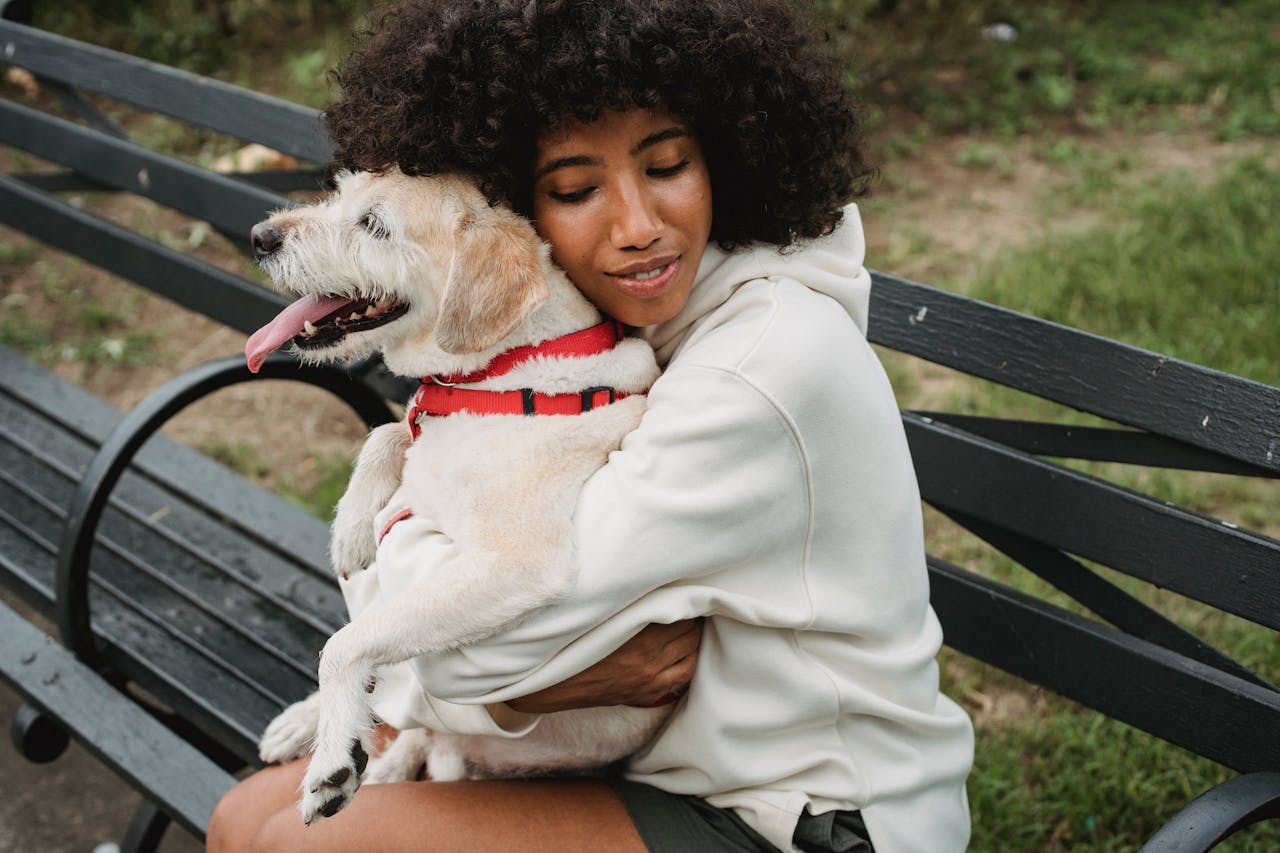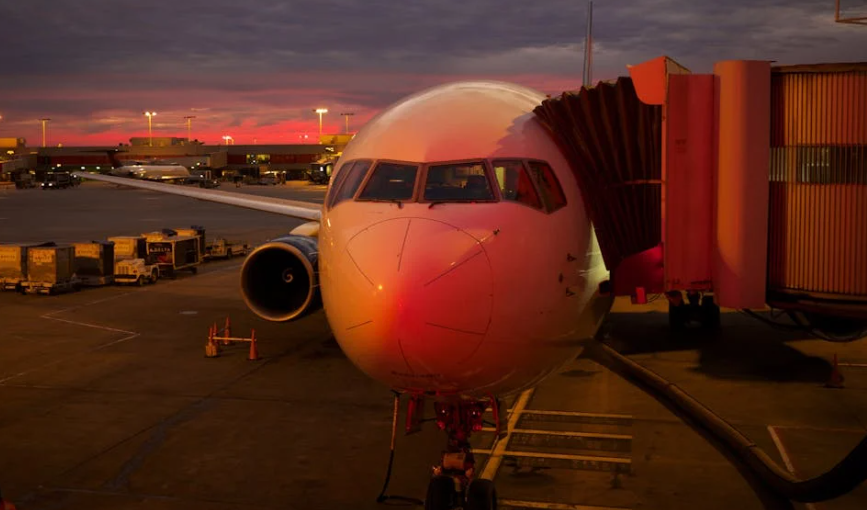- Key Takeaways
- EasyJet- Flying With Emotional Support Animals
- EasyJet- Flying With Service/Assistance Dogs
- Do Service/Assistance Dogs Travel For Free?
- Training Your Dog as a Service/Assistance Dog
- Flying On EasyJet With Self-Trained Service/Assistance Dogs
- Why Train with Service Dog Training School International?
- FAQ
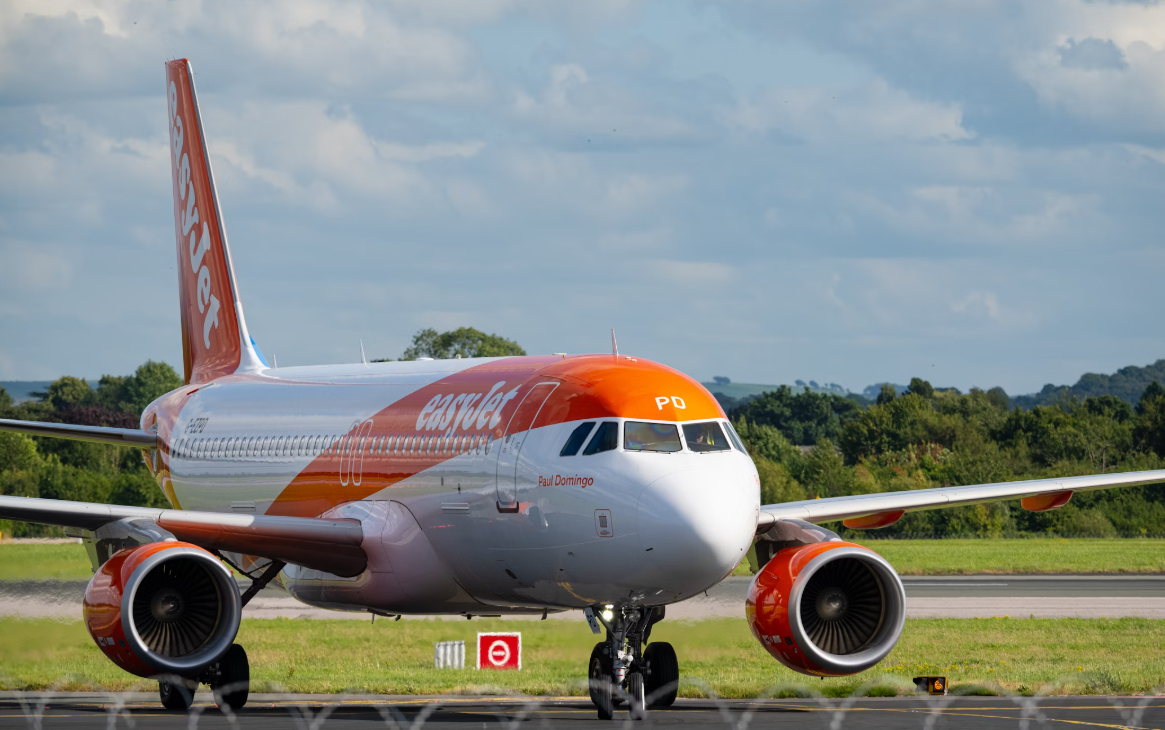
Flying with your dog can definitely fill your journey with joy and excitement! However, it can also be a stressful experience, especially when they are a service animal subject to specific policies.
To make your journey smooth and stress-free, you should prepare in advance and ensure compliance with the airline’s policies. This typically includes having the required paperwork for your dog, ensuring they are fit for travel and properly trained (in the case of service dogs).
If you're flying with EasyJet, today’s article can help you familiarize yourself with the airline’s ESA and service dog policy and properly prepare for your trip!
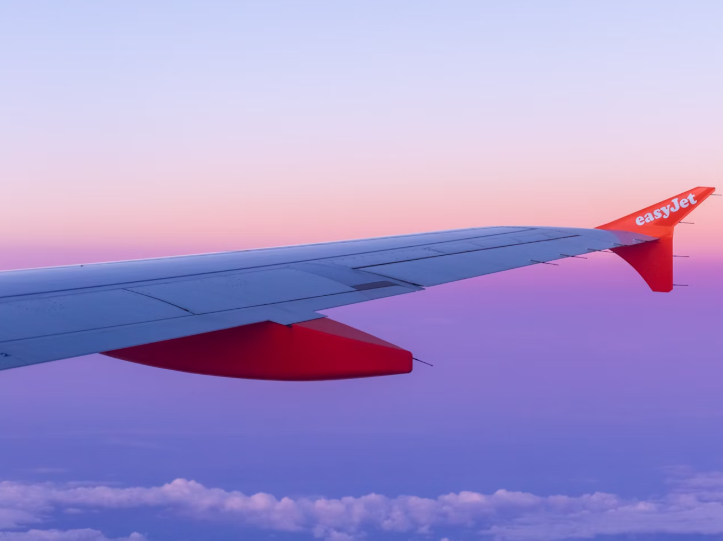
Key Takeaways
-
Does EasyJet Accept Emotional Support Animals (ESAs)?
No, the airline does not accept ESAs on board their aircraft.
-
Does EasyJet Accept Service/Assistance Dogs?
Yes, service dogs are allowed to travel on EasyJet flights. However, there are exceptions based on the specific route, so you need to check the airline’s policy for your itinerary.
-
Do Service/Assistance Dogs Fly for Free?
All service dogs, that meet the airline’s requirements can fly at no additional cost.
-
How to Get a Service/Assistance Dog?
Service/assistance dogs perform specific tasks directly related to their owner’s disability. If you already have a dog, the team at Service Dog Training School International can help you to train them so they can become your reliable assistant! However, we advise you to review the airline’s policy and ensure compliance with their policy on your route.
-
How to Qualify for a Service/Assistance Dog?
To qualify for a service dog, you must have a diagnosed physical and/or mental disability, including but not limited to mobility impairments, visual impairments, anxiety, hearing issues, PTSD, diabetes, seizures, cardiac issues, depression, bipolar disorder, and more.
-
How to Get Started?
Get started by taking our simple service dogtraining assessment to see if you qualify, and enroll in the course that is the right fit for your needs.
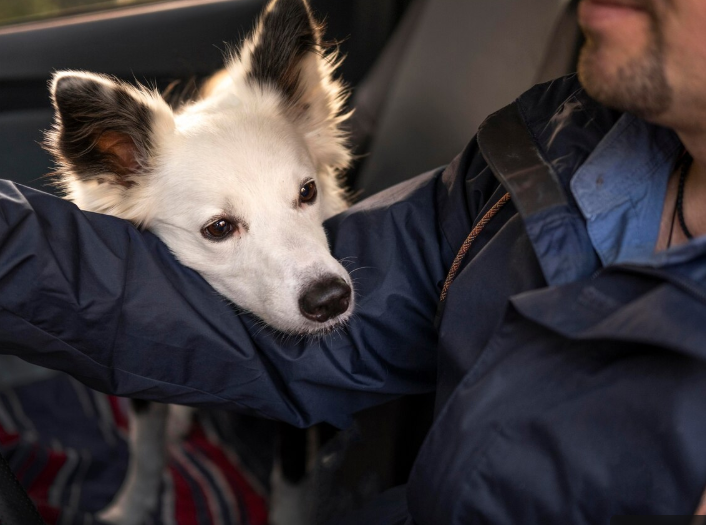
EasyJet- Flying With Emotional Support Animals
Emotional Support Animals have proved beneficial for their owners’ emotional health and overall well-being. However, unlike service dogs, they are not trained to perform specific tasks related to a disability. Most major airlines no longer accept them in the passenger cabin for free. While many airlines perceive ESAs are pets and allow them to travel according to their pet policies, this is not the case with EasyJet.
The airline does not accept ESAs and pets on all their flights. This applies to all types of species.
If you have a beloved dog, cat, hamster, guinea pig, or any other domesticated animal, you may need to consider the services of a different airline.
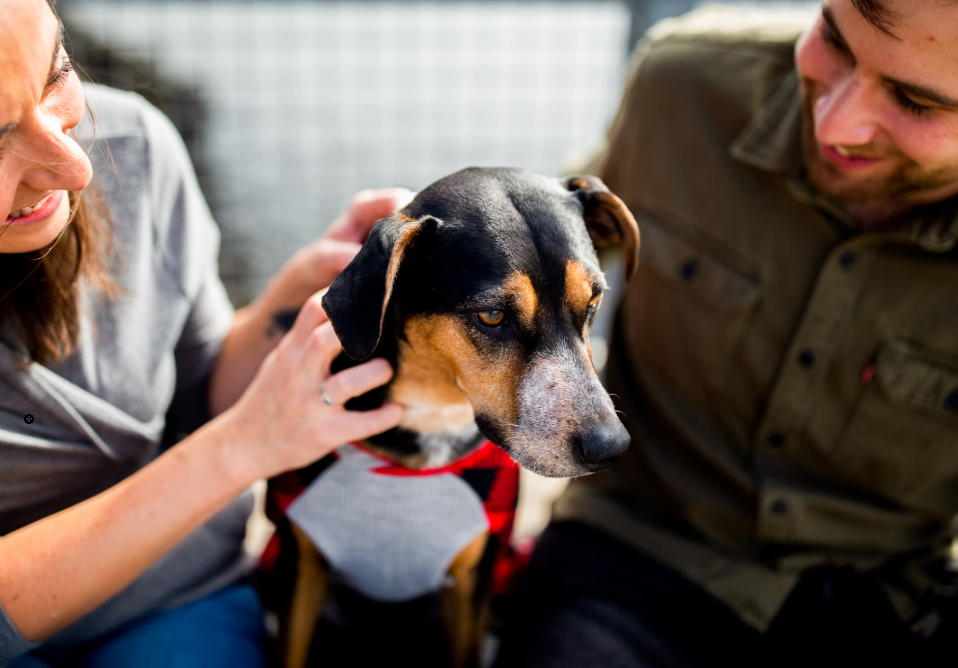
EasyJet- Flying With Service/Assistance Dogs
Service/Assistance Dogs- Definition
EasyJet accepts dogs as service/assistance dogs that have been “specifically trained to perform tasks to assist a person with a disability and has been certified by a recognised assistance dog training organisation”.
We would like to note that the terms 'service dogs' and 'assistance dogs' have the same meaning but are used in different parts of the world. While 'service dogs' is primarily used in North and South America, 'assistance dogs' is more commonly used in Europe.
Service/Assistance Dogs- Training Requirements
The airline accepts assistance dogs, trained by Assistance Assistance Dogs International (ADI) or the International Guide Dog Federation (IGDF) on all permitted routes based on its policy.
It’s specified that other organizations with comparable training standards to those of ADI and IGDF will may also be accepted on a case-by-case basis for travel within or between the EU and Switzerland. The United Kingdom is excluded from this rule.
Are Service/Assistance Dogs Accepted On All Routes?
No, service/assistance dogs are accepted on most routes but not all of them. For example, due to local customs regulations, they are not allowed on flights to/from the following countries:
-Israel;
-Kosovo;
-Egypt;
-Montenegro;
-Morocco;
-Turkey.
If you are planning to travel with your dog/assistance dog to/from any of those countries, you’d better opt for a different airline.
Service/Assistance Dogs- Documentation
Passengers traveling with an assistance dog are required to provide documents confirming the dog's health and training as a condition for acceptance on the aircraft. These are:
-Health certificate (or pet passport, provided it is accepted in the destination country).
-Vaccination certificates, which may vary depending on the destination. Service/assistance dog owners need to ensure their dogs have received all required vaccinations within the time frame specified by the laws of the destination country.
-Official documentation from the training organization as proof of completed training, including details of the specific tasks the dog has been trained and assessed to perform on the owner's behalf.
Booking Your Flight With a Service/Assistance Dog
Passengers flying with a service/assistance dog are required to provide details of their dog’s health and training at least 48 hours prior to departure. The airline recommends that assistance dog users/handlers contact their representatives as soon as possible.
The airline staff will review the documentation and may reach out to the training organization to confirm the dog’s training.
EasyJet clearly states on their website that they don't accept liability for assistance dogs with improper documentation.
When traveling with an assistance dog, passengers are required to:
-Notify the animal reception centre at the arrival airport that they are intending to bring an assistance dog. EasyJet recommends reviewing the contact details on their website or receiving advice from Guide Dogs UK or the Pet Travel Scheme helpline.
-Put training/identification gear on their dogs, such as a vest/harness.
-Arrive at Bag Drop or the Special Assistance area no later than 2 hours before departure to ensure sufficient time to complete any necessary documentation.
Assistance dogs whose owners do not notify the animal reception may be denied entry or placed in quarantine. Additionally, fines may be charged for incorrect documents.
Do Service/Assistance Dogs Travel For Free?
EasyJet clarifies on their website that assistance dogs, along with their containers and food travel at no cost in addition to the baggage allowance.
Does EasyJet Accept Service/Assistance Dogs In Training?
The airline may accept assistance dogs in training on certain flights, provided the dogs are in an advanced training stage and under the control of a trainer accredited by either ADI or the IGDF. Passengers are advised to contact the airline for further assistance.
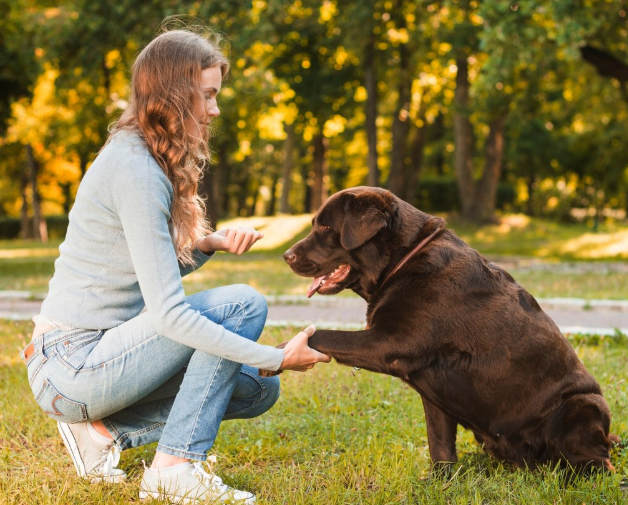
Training Your Dog as a Service/Assistance Dog
If you are wondering if you can train your pet dog as an assistance dog, then you should know you can do it. Remember, though, that your dog should be friendly, and people-oriented and have the right personality for the job. On the other hand, you will need to show patience, determination and consistency, and a clearly understand what the training entails.
Basic Obedience Training
The training process starts with the foundation before diving into more specialized service dog training.
Your dog should master commands like ‘sit’, ‘stay’, ‘recall’ (come when called), ‘heel’ and walking on a leash, before being engaged in service/assistance dog training. Additionally, you need to ensure your paw partner can remain focused on you regardless of the situation or surroundings. Focus training is among the most essential aspects of basic obedience.
Don’t rush the process, as it’s crucial to allow your dog to build confidence in these basic skills before advancing to more complex tasks.
Specific Service Dog Training
The tasks a service/assistance dog can be trained to perform can vary significantly depending on the individual’s needs. One of the main benefits of owner/self-training is the ability to customize tasks to better serve the handler’s/user’s needs. It will allow you to bond with your dog on a deeper level and personalize the training so both of you feel comfortable.
Additionally, let’s clarify that you can be both the handler and the user, thus the person who trains the dog and also benefits from the performed tasks; or you can play one of these roles. In some cases, the individual who is engaged in the training process is different from the person who benefits from the specific tasks, for example, a parent can be the handler of a service dog for their child.
Specific service/assistance dog tasks can include but are not limited to:
-
Providing tactile stimulation like nose nudges, ‘kisses,’ or Deep Pressure Therapy (DPT).
-
Reminding the handler to take their medication.
-
Alerting to changes in heart rate, blood sugar levels, seizures, or other medical conditions.
-
Assisting during panic attacks or anxiety by leading the handler to a safe place.
-
Interrupting repetitive behaviors.
-
Offering mobility and balance support, or creating space in crowded areas.
-
Retrieving important items like medication or a phone.
-
Waking the handler during nightmares or night terrors.
Certain tasks may come more easily to your dog, especially if there is already a strong bond between you. While psychiatric service dog training can be less physically demanding than other types, it still requires regular practice, patience, and clear goals.
Public Access Training
A key component of service dog training is teaching your dog to stay calm and composed in public settings. Service dogs need to focus on their handlers, ignore distractions, and act appropriately in all kinds of environments.
Start by gradually exposing your dog to new situations in a controlled manner. Begin in low-distraction environments and slowly increase the difficulty. Positive reinforcement, such as treats, toys, praise, and petting, will encourage them to repeat the desired behaviors.
Remember that getting to know your dog as an individual plays an essential role in finding the right motivator for them. While food-motivated dogs are easier to train, you can successfully use secondary positive reinforcement tools like toys and praise.
Let’s not forget that consistent socialization is another critical aspect in dog training, especially when it comes to service/assistance dogs. Socialization involves exposing your dog to a variety of people, environments, sounds, and experiences, helping them become adaptable and confident in different situations. It helps ensure your canine reliably performs their tasks in busy public spaces.
By introducing new experiences gradually and reinforcing good behavior, you help your dog become a loyal assistant, ready to support you whenever needed.
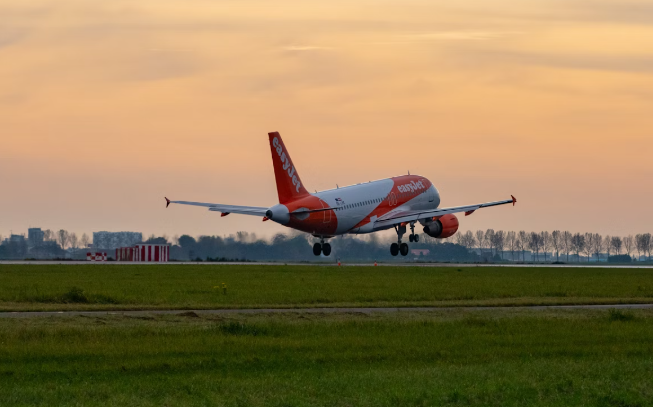
Flying On EasyJet With Self-Trained Service/Assistance Dogs
If EasyJet is the primary airline of interest to you, please note that they may not be the ideal option for flying with a self-trained service/assistance dog. They specifically clarify in their policy, that only dogs trained through ADI and IGDF will be accommodated in the passenger cabin at no cost.
An exception may be made for flights within or between the EU and Switzerland, except for the UK. However, these are assessed on a case-by-case basis. With that said, we strongly advise you to contact the airline as as soon as possible before your flight to confirm the type of certification they require for your route.
It’s important to clarify that ADI and IGDF members are non-profit organizations and charities that provide trained assistance dogs. Most of these organizations do not typically work with their clients’ pet dogs. However, you can visit their websites to review if any members in your area are open to working with their customers’ pet dogs.
Last but not least, we recommend contacting them regarding their policy for traveling with service dogs to/from the U.S., where self-trained service dogs are legally recognized. You may want to read more detailed information about service dog laws in the US, on the website of the Americans with Disabilities Act (ADA) and the U.S. Department of Transportation.
Why Train with Service Dog Training School International?
Transforming your dog into a reliable service animal doesn’t have to be overwhelming. Our programs are designed to make your training journey smooth and straightforward, and ensure that both you and your dog feel comfortable throughout the process.
Each course is structured to guide you step by step, helping you teach your canine everything from basic obedience to specialized service tasks tailored to the program. Additionally, impeccable manners in public settings are included in all our service dog courses to ensure your furry friend is well-behaved outdoors.
Our team provides ongoing support by answering questions, offering expert advice, and ensuring you feel confident at every stage of the process.
Upon completing our program, you will receive a certificate as proof of training as assurance that your dog is prepared to meet the demands of being a service animal. This certificate can also serve as valuable documentation when navigating situations like public access or travel requirements. Additionally, your dog’s credentials will be added to our online verification system, allowing for quick and easy confirmation of their training whenever needed. With our program, you’ll have the tools, support, and confidence to succeed.
If you plan to use our certificate for travel on EasyJet, please contact the airline in advance to inquire about their assistance dog training requirements for your specific route and confirm whether our certificate will be accepted or not.
FAQ
Am I allowed to travel with my emotional support dog on EasyJet?
Unfortunately, you are not. The airline does not accept ESAs on their aircraft.
Am I allowed to travel with my pet dog in compliance with EasyJet’s pet policy?
The airline does not accept any pets of any kind onboard their aircraft, but only trained assistance dogs.
Does EasyJet accept assistance/service dogs on their routes?
While the airline accept trained assistance dogs that meet their criteria on most routes, there are certain exceptions, such as flights to/from Egypt, Israel, Kosovo, Montenegro, Morocco, and Turkey due to local customs regulations.




